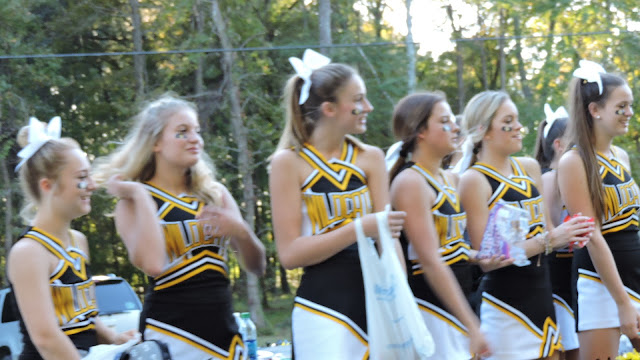Attorney Raven Willis’ Contract Time Bombs caught
my attention. They were great free nuggets of advice and very relevant to
my current phase. Transitioning to a multi-vertical business is hard
work. It’s hard on nearly every level when doing it sort of Richard
Branson-ish like - less the billions. Willis’
Linkedin post on severability provoked a re-evaluation of my thought
process. And it prompted me to contact her.
Severability
sounds so ominously debilitating, like it may be a term relevant to fighting
zombies instead of legal battles. Severability refers to removing a
provision from a contract when it becomes known as unenforceable or
illegal. The provision is cut but the remaining body of the contract
keeps lurching forward. Practically, this means that a particular
provision may leave one party with no reason to maintain the business
relationship and seek to terminate the contract. However, the other
signatory, Party B, may see no reason to terminate the agreement at all. In
fact, it may be to its advantage to keep the contract active. Party A can
be required to keep paying or providing a service to Party B regardless of the
lack of mutually positive economic outcome. Showing bravado in a bold
statement like, There is no longer anything in it for me, so I
am not paying, is a non-starter that may get you on the
losing end of an expensive legal battle.
Willis quoted the legal case of Circle
Appliance v. Appliance Warehouse, Inc, (AWI) http://law.justia.com/cases/georgia/court-of-appeals/1992/a92a0796-0.html.
In this case, AWI stopped paying Circle because the non-competition clause was
found to be illegal. AWI asserted that the contract was void in its
entirety. When sued, AWI won initially. Circle appealed and the
judgement was reversed to its favor. One result of the successful
appeal would be that AWI ended up funding a competitive base against
itself.
I placed this precious note in my red flag file, hit the like button on the post, and reached out to Willis. I asked her why she focused on small businesses with her legal posts. Secondly, I asked about other cautions to small business owners. This will be covered in Part 2.
On why she focused on small business with her Linkedin pulse
feeds, Willis stated, “I have a place in my heart for small business
owners. My mother’s small business put me through school.”
“Is that why you went into law?”
She replied that it wasn’t. It was her cut and dry
legalistic view that got her into law. “My mother told me that I had a
definite sense of right and wrong. There are no gray areas for me.
After finishing my undergraduate degree, I wanted to further my education.
I really didn’t know what my advanced degree would be. It seemed
like MBAs were a dime a dozen. Law school took time but it seemed to fit
my best attributes. So, in 2005, while my husband worked on his PhD, I
started law school.”
“What was that like for you?”
“I worked a full-time job dealing with government
contracts. After work, I hurried to my car and headed to law school until
about 10:30. Just over a year after I started, I got pregnant.”
Of course, I interrupted her, “Sorry to interrupt. Please
go back a second. So… you were married, had a full-time job, pregnant,
and in law school, not getting home until late.”
“Yes and we were happy, but I wondered how I would get through
it. It turned out that the timing was good. Morning sickness was
worse at work than it was in school. Things were better by the evening
time. I had to compartmentalize my work to get everything done to be
present in both places. Also, I had such wonderful classmates. Some
classmates were retired and working toward new careers. Others were
trying to change careers. There were mothers who already had children and
pregnant again.”
Willis went on to say that family was a great help. When
asked about the most difficult thing she encountered while being pregnant in
law school, she replied, “Sitting in a hard surfaced chair was misery.
Carrying my donut shaped pillow was more important than carrying books.
After I delivered in year two, I sat out a semester. All the people who
started with me graduated. That was really hard to have to graduate a
semester after them.”
More on Willis in Part 2. In the meantime:
- Raven Willis' Blog: mylegalhacks.com
- Read more of Raven Willis' linkedin posts: https://www.linkedin.com/today/author/77163335
Hangout with me (Al) on G+https://plus.google.com/107899530814074427521/about
Read Me on Amazon: http://www.amazon.com/Al-Hardy/e/B007XMR98E/






































































